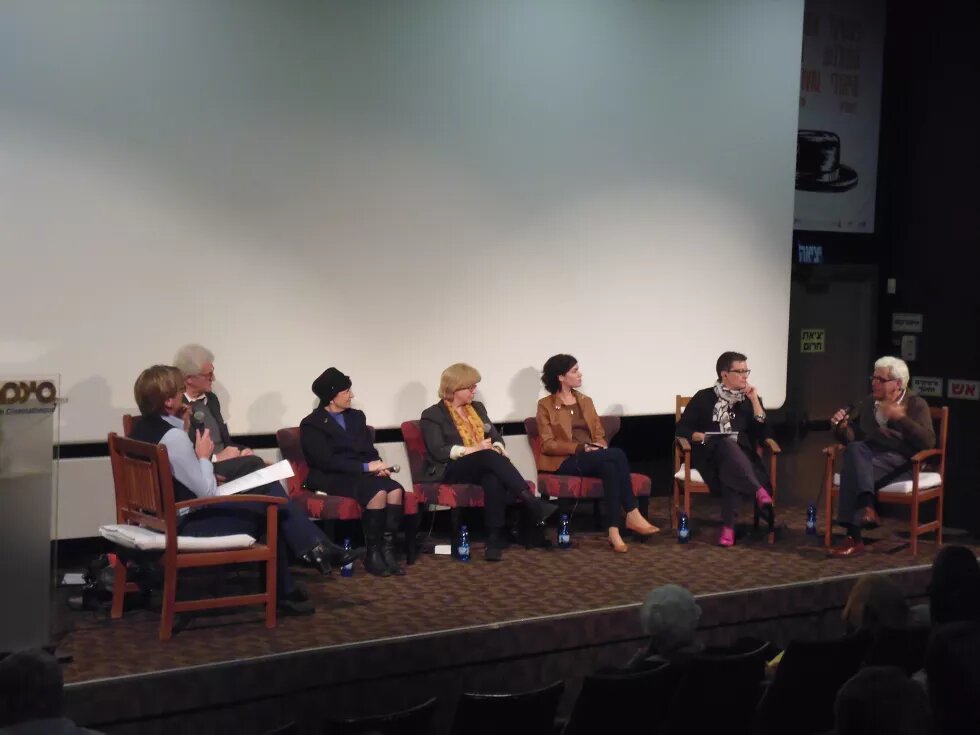
The thesis of this piece is that Feminist Rereading is never enough to correct the harms done to women by the subordination suffered and engendered by religious texts. And that only a state, dedicated to universal, human rights, can best mitigate the effects of those harms.
aim that feminist rereading of religious texts is not important. Nor do I claim that state involvement is enough to correct those harms done by religious texts. I recognize that re-reading is essential for the construction of full, systemic solutions to harms done by religious texts and norms. And I know that a state, despite its best effort, cannot prevent those harms. But I will posit that, so long as the state embraces, and in fact imposes, religious texts and their norms on its citizens– whether in the spirit of multiculturalism, cultural tolerance, or the interests of having a “Jewish” state or “Muslim” one -- feminist re-readings may do more harm than good. And I will further posit that even if the state were to adopt universal norms, feminist rereading of religious texts would not be enough to correct harms done by those texts.
In support of my claim that feminist re-readings can do more harm than good when a state embraces religious norms, I will, in the first part of my talk, draw on my experience as the founding director of two ngo’s in the State of Israel where religious texts and laws are imposed on all its citizens. Both ngo’s are dedicated to solving the problem of the agunah—the Jewish woman anchored to her failed marriage by religious texts that declare that she is only free when her husband agrees to give her a bill of divorce, a gett. One ngo, Yad L’Isha, calls on the rabbis to accept feminist re-reading of rabbinic texts to apply more sanctions, against more husbands, in more cases. The other ngo, the Center for Women’s Justice (CWJ), calls on “universal” and secular values of tort and human rights not only to demand that Israeli courts award damages to women whose husbands deny them a divorce, but also to limit the scope of the rabbinic courts’ jurisdiction when it violates human rights. Without the more critical voice of CWJ and ngo’s like it, significant reforms would not have been implemented. Without the more critical voice of CWJ and ngo’s like it, the more modest changes engendered by the more modest demands of the re-readers would have been hailed as progress, delaying necessary reforms.
In support of my claim that feminist re-reading of religious texts will never fully correct harms done by those texts, I will also draw on my experience as a member of Gettlink, an international organization made up of feminist activists dedicated to solving the problem of the agunah. Despite decades of efforts by such activists, it is an incontrovertible fact that, to this very day, there are numerous agunot in Western countries that separate church and state and are committed to human rights. And, I will predict, that there will be agunot in those countries for the foreseeable future, despite increasingly clever re-readings of religious texts. There are numerous reasons for this. First, because there will always be conservative groups who define themselves as the “authentic” expression of religion by sustaining a “fundamentalist/patriarchal” reading of religious texts. Such conservatives will never accept creative re-reading of those texts. Second, because many of those who are re-reading the religious texts are unable to acknowledge that the religious texts were written by men (not God) and are therefore fallible and malleable. This severely limits the creative possibilities of re-readings. Third, because the core “fundamentalist/patriarchal” order of things in which women are subordinate to men is symbolic of the religious order of things--men are subordinate to God. This symbolic order is not easily displaced. And fourth, because many of the re-readers caught in a difficult cultural bargain, will not call for the most elementary and necessary reforms: like elimination of all-male religious courts.
In short, I support a plea for secularization. This does not mean the denial of religion, but its separation from the political sphere and placement in civil society. Once there, re-reading of religious texts is certainly welcome. This is the position taken by Valentine Moghadam (2002) in response to the question of whether Islamic feminism can engender necessary reform in Iran. She states:
[A]lthough religious reform is salutary and necessary, it is important to acknowledge its limitations. Women’s rights and human rights are best promoted and protected in an environment of secular thought and secular institutions, including a state that defends the rights of all its citizens irrespective of religious affiliation, and a civil society with strong organizations that can constitute a check on the state…Religious doctrine should not be the basis of laws, policies, or institutions..” (at 1160, 1163).
Moghadam, V. M. (2002). Islamic Feminism and Its Discontents: Toward a Resolution of the Debate. Signs, 27(4), 1135-1171.